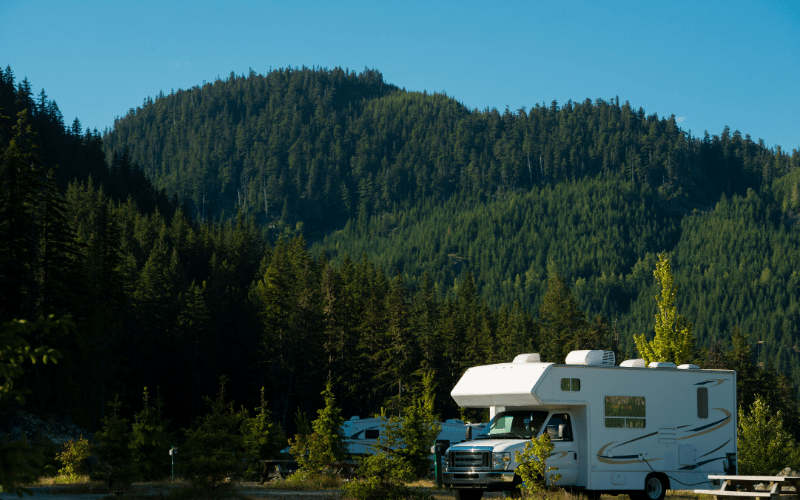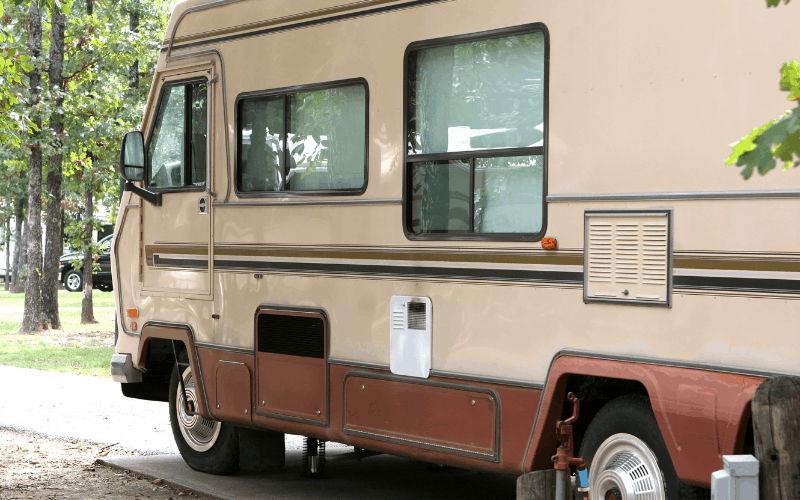Published Date: October 17, 2020
Last Updated on June 22, 2023 by Camper Front
Should I leave my RV inverter on all the time? While the answer is NO as it’ll seem inappropriate to leave your RV inverter on all the time, it also depends on the appliances you’re running on your RV.
The fact that an RV has some appliances that are not present in a “normal” home can make living in an RV quite complicated as you may encounter things you probably haven’t in your home.
However, this question does not have a definite answer, knowing if you should keep your inverter on/off all the time totally depends on a couple of factors, which we are going to talk about in this article.
Let’s get started!
Table of Contents
What is an RV Inverter?
Before we find out if you should leave your RV inverter on/off, what exactly is an RV inverter?
Well, An RV inverter is used to change AC power to DC power. RV systems have in-built inverters installed so that you can charge your RV battery while you’re parked at a campsite with electric hookups.
The inverted AC current can then be used to run household appliances, and other electrical devices plugged into outlets inside an RV.
Inverters also offer people camping off-grid to still have access to some of the comforts of home, such as refrigerators, microwaves, and television without access to a generator plug-in or shore power.
Now you know how important an inverter is, it can even be used to invert DC currents from a solar panel into usable AC currents.
Now it is easy to confuse inverters with converters and converter chargers. They all perform very different functions in an RV’s energy production and distribution.
An inverter inverts incoming DC current into AC current for use in appliances that run on regular household 115 VAC current; an inverter allows you to use AC appliances while you’re off-grid.
Converters, on the other hand, take 115 VAC current from shore power or a generator and then convert it to 12 VDC current in order to power appliances that run on DC current like the RV batteries supply.
It helps to prevent your RV’s main battery from being totally drained while you’re making use of DC appliances with shore power.
Lastly, a converter-charger functions as a normal converter and charges up battery power when it has an excess supply.
Should I Leave My RV Inverter On All The Time?

Now unto the topic of today! Before deciding if you should leave your RV on or off, there are several variables that should be considered, which include:
- What appliances and devices are you running on your RV?
- Do you have a dual-unit inverter?
- Are you connected to shore power?
- Do you have a generator with an automatic start function?
- Is it recommended by your inverter’s manufacturer that it be left on or not?
- What’s your battery storage capacity?
Generally, leaving your inverter on or off totally depends on the circumstances around the inverter’s function.
Leaving Your Rv Inverter On
There are numerous reasons and circumstances why you will need to leave your inverter on, and here are some of the reasons;
- While on your way, you will need to leave your RV inverter on in order to be able to make use of the AC appliances in the RV.
- If, in instances where your shore power supply is cut off, you will need to leave your inverter on.
- Before disconnecting from shore power when you are leaving the campground, you will need to turn on the inverter so that your appliances continue to work even after you break the connection so that you have an uninterrupted power supply in your RV.
- If you have an AC refrigerator in your RV stocked with perishable items like meat, you will need to keep the inverter on so that the fridge and its contents remain cool.
- If you are making use of a dual unit, you will need to leave the inverter on so that the converter can continue doing its job and charge house batteries while using shore power.
- If you have settings like clock settings or microwave, keeping your inverter on while driving ensures that you do not lose any of the settings
- If you plan to charge your gadgets like phones or laptops using standard wall chargers, you will need to keep the inverter on.
These are a few of the scenarios where leaving your RV inverter on is important and beneficial. You have to note that the ability to either turn off/on your inverter totally depends on the inverter type.
So You will need to cross-check the model of your inverter and look at its specifications to see whether it has converter ability or not.
Leaving Your Converter Off
There are also a couple of reasons you may need to keep your inverter turned off, and here are some reasons why;
- It is actually recommended by some inverter manufacturers to always keep your inverter turned off when not in use. So you will need to refer back to your inverter user manual and see what was recommended by the manufacturer.
- Turning off your inverter when not in use will help to prevent battery hog, this is because an inverter requires up to ten times as much amperage off the battery as it is required to supply, and this can drain the RV battery quickly when left on for too long.
- Turning off your inverter when not in use will also reduce the level of wear and tear of the device, and this can help to extend its lifespan longer than if it’s left on continuously.
- It may be way easier to run a generator when in need of AC power than having to make use of an inverter, which drains the RV battery quickly. You can also connect an automatic start function that helps to monitor the battery’s level so that undue damage is avoided.
- If you don’t have any important use for the AC power, you can save a lot of energy consumption by shutting your inverter off.
Leaving your inverter on might be a really convenient thing to do, but it drains your batteries fast in order to perform the function of inverting DC current to AC current.
Even when it is in standby mode, the inverter is still what is referred to as a “parasitic” load, and it keeps drawing small amounts of power from the battery banks of the RV to power their electronics.
And if your RV isn’t connected to any source of power, this continuous trickle can totally deplete the battery charge.
Read Also: Common RV Electrical Faults
Conclusion
Inverters can be extremely handy when you are camping off the grid in areas without electric outlets, and you need to make use of electrical devices. You just need to be always aware of your battery’s voltage level and have a planned way of charging your battery via a generator or other means if it gets low.
In the end, the question “should I leave my RV inverter on all the time” can only be answered by your current needs and circumstances.

